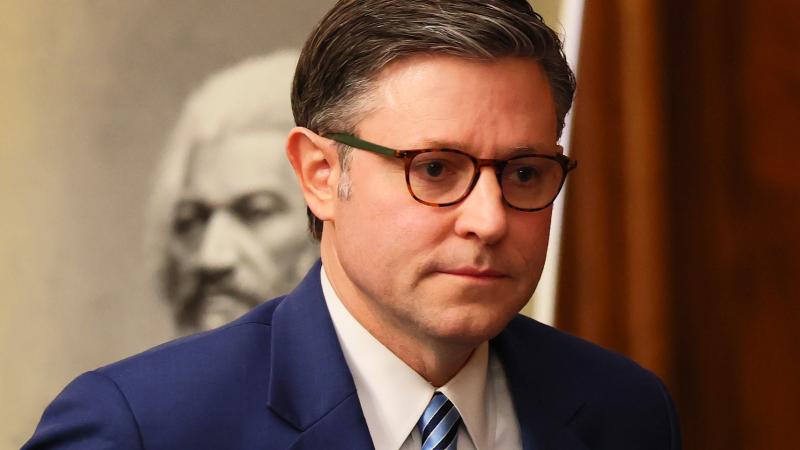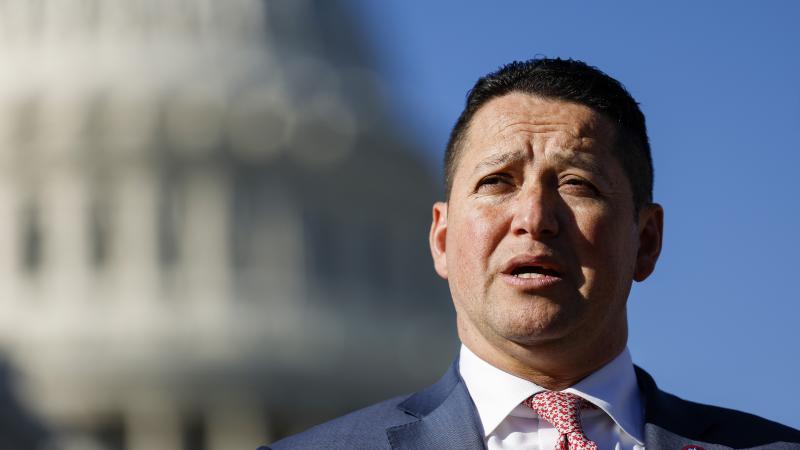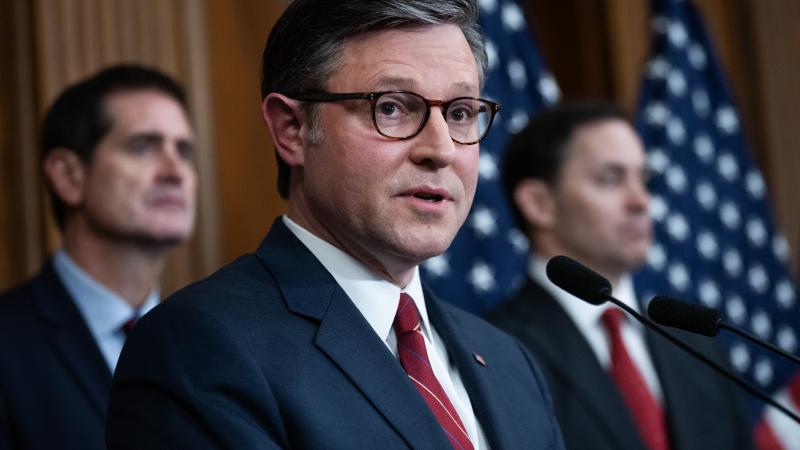Tool to make it easier for Trump to return excess funds to Treasury without Congress gains steam
The plan would not completely allow Trump to address the issue independently, but would offer the White House a useful tool to chip away at the debt over time.
As lawmakers move to pass President Donald Trump’s “big beautiful bill” to fund the government and his legislative priorities, some are weighing whether to give the president more leeway to return excess funds directly to the Treasury without Congress getting deeply involved.
Though Trump has floated passing a balanced budget during his term, the “big beautiful bill” calls for cutting $1.5 trillion in spending over 10 years, down considerably from the $2 trillion in one year needed to balance the budget. The plan would not completely allow Trump to address the issue independently, but some are considering offering the White House a useful tool to chip away at the debt over time.
Just the News obtained the text of the language currently in circulation, which reads:
“For the purpose of this legislation and all prior federal funding authorizations and appropriations, the executive branch is hereby authorized to return to the Treasury any unspent monies for appropriations and authorizations if it can certify it has fully met the requirements and intent that Congress set for those expenditures. Nothing in this legislation shall be construed to subjecate [sic] or override the Article 1 powers of the House and Senate but rather the legislative branch wishes to exercise those powers to give a president a simple and common sense vehicle to reward taxpayers with returned funds for deficit and debt reduction should his or her administration fly deliver on the intent and demands of Congress with a more efficient cost than estimated in legislation.”
Essentially, if executive agencies were to certify that they had managed to accomplish all of the objectives that Congress had set for them in allocating their funding, the president could unilaterally return the excess funding to the Treasury without the need for a rescissions package or impoundment.
Thus far, the measure appears to have the interest of the executive branch and lawmakers in at least one chamber of Congress. Speaking on the John Solomon Reports podcast last week, Rep. Blake Moore, R-Utah, said that “[i]t does appeal to me.”
He observed that such an executive determination and the process for it would likely be the subject of debate, but added “we're always going to have those kind of debates. The fact the other side of the coin, where, at the end of the year, the end of the budget cycle, you have federal agencies that are [in a] use it or lose it situation… has created a lot of waste.”
“We are the legislative branch controlling the purse, telling the executive branch, hey, you've got some more authority here. We have given the executive branch far more authority on regulation, regulatory work than we should have ever done,” he warned. “This one, though, seems to make sense a lot more, and I think it gained some support.”
On the White House’s side, the matter appears to be of interest, but a secondary priority toward passing the “big beautiful bill,” which has only cleared the lower chamber and is likely to face intense reconciliation battles even after clearing the Senate.
“Look, the White House has been on the front lines of reducing spending. It is the President who put DOGE in place to start rooting out the waste, fraud and abuse,” Deputy Chief of Staff James Blair said on the Just the News, No Noise television show last week.
"It is the President who has been the boldest president in American history to go after the waste and the corruption and the misuse of taxpayer dollars and the agencies in the executive branch," he added.
“So we're doing our part, and we are pushing Congress to do more. Look, we're going to look at that language. I think it is floating around,” he continued. “But what's most important, again, this is just the first step in a multi-step process."
The House passed the bill last week in a narrow, 215-214 vote, with two Republicans voting against it and two more failing to cast their votes. The Senate is divided 53-47 and Republicans can ill-afford defections to pass the legislation. Several lawmakers have indicated, however, that they plan to offer different solutions in the Senate version of the bill to key issues like energy tax credits that will force a difficult reconciliation process to send it to Trump’s desk.
“This is arguably the most significant piece of Legislation that will ever be signed in the History of our Country!” Trump said after the House vote. “The Bill includes MASSIVE Tax CUTS, No Tax on Tips, No Tax on Overtime, Tax Deductions when you purchase an American Made Vehicle, along with strong Border Security measures, Pay Raises for our ICE and Border Patrol Agents, Funding for the Golden Dome, ‘TRUMP Savings Accounts’ for newborn babies, and much more.”














